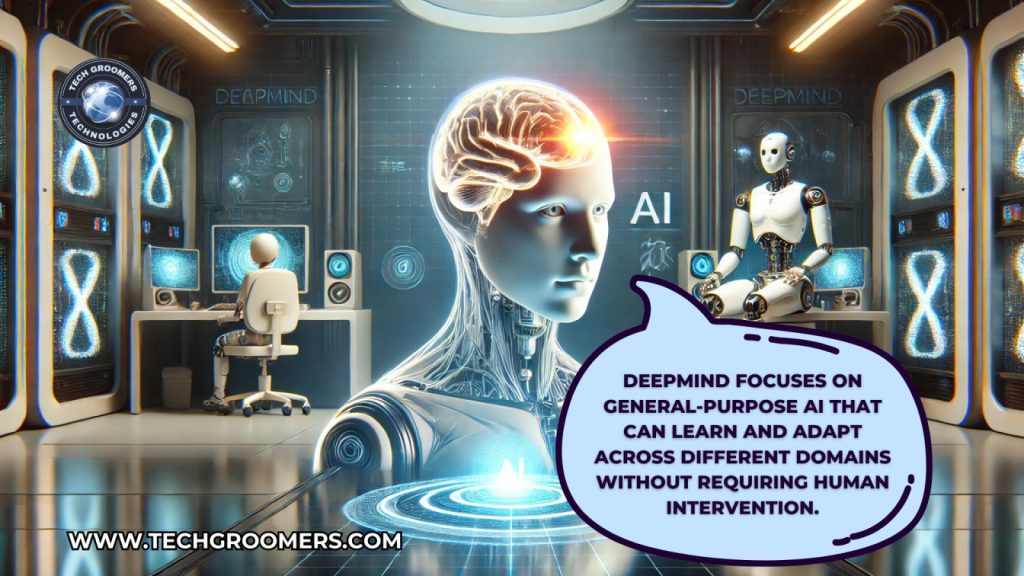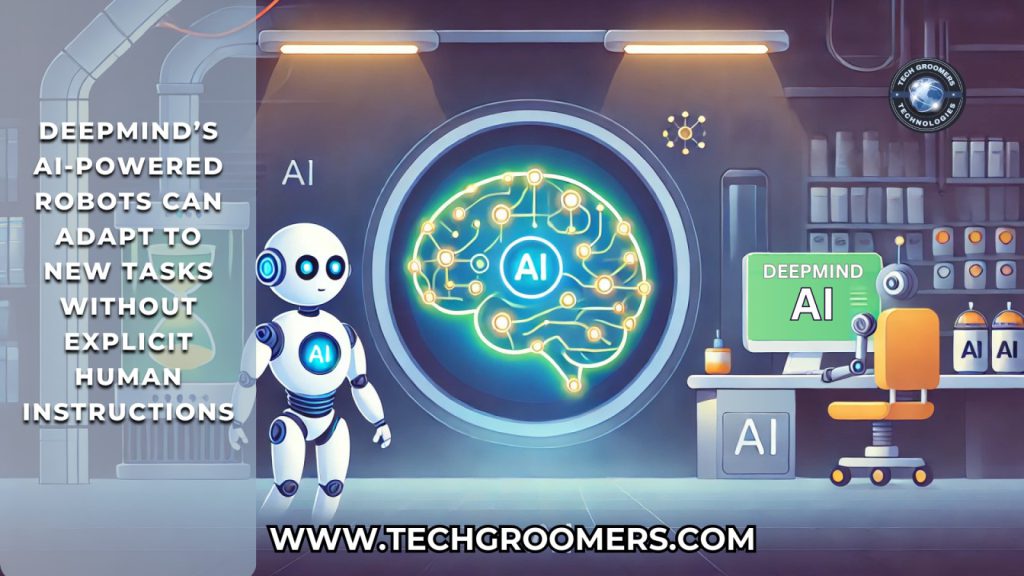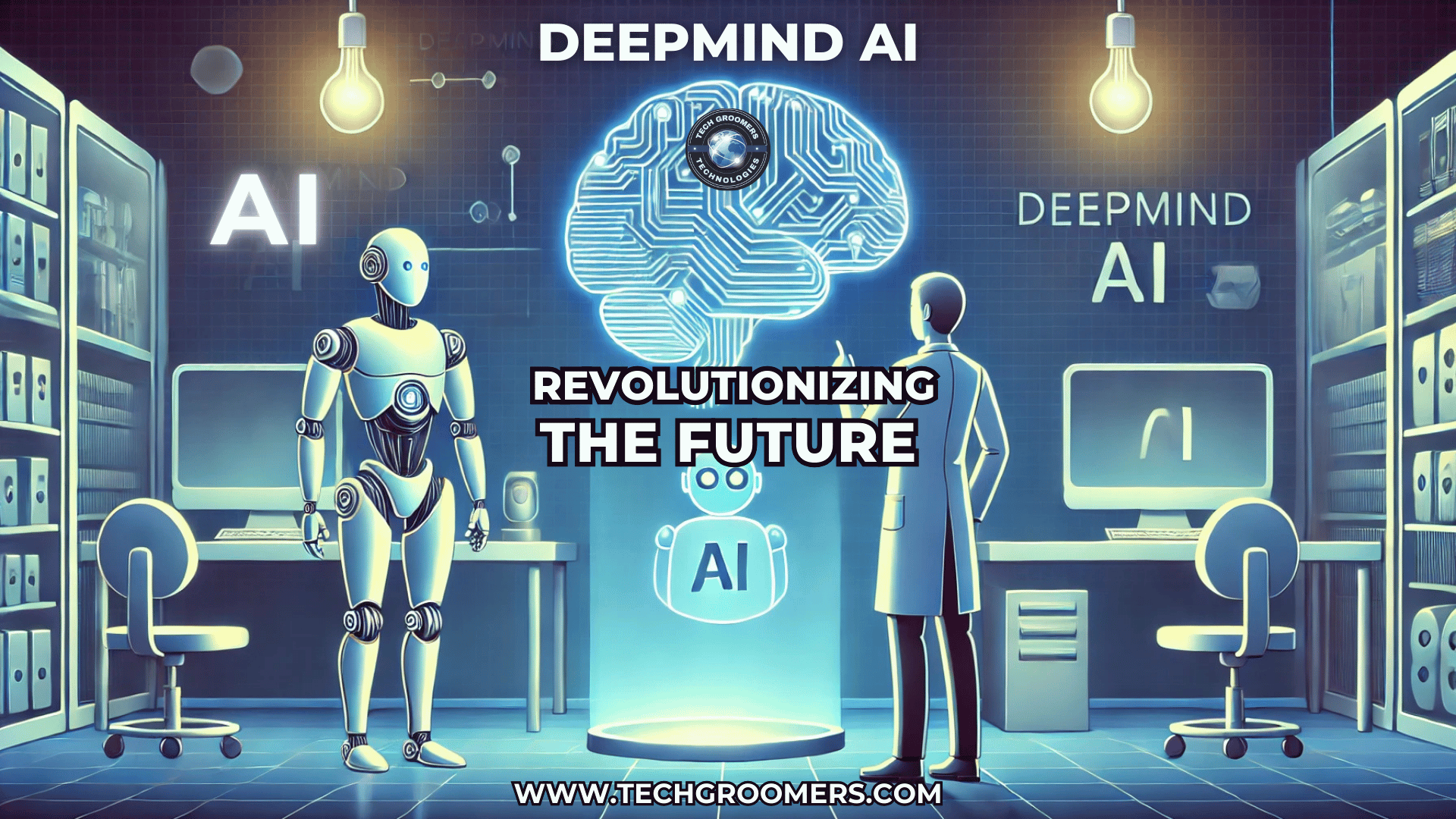Artificial Intelligence (AI) has seen remarkable progress in the last decade, with DeepMind emerging as a frontrunner in the AI revolution. Founded in 2010 and acquired by Google in 2014, DeepMind has consistently pushed the boundaries of AI research. From mastering complex games to solving real-world challenges in healthcare and scientific discovery, DeepMind’s contributions have been nothing short of groundbreaking.
In this blog, we will explore DeepMind AI, its achievements, applications, and the impact it has on various industries.
What is DeepMind AI?
DeepMind is an AI research company that specializes in deep learning, neural networks, and reinforcement learning. The company’s mission is to “solve intelligence and use it to make the world a better place.” Unlike conventional AI systems, DeepMind focuses on general-purpose AI that can learn and adapt across different domains without requiring human intervention.

DeepMind’s AI models use advanced machine learning techniques to analyze vast amounts of data, identify patterns, and make predictions with exceptional accuracy. The company has made significant contributions to fields like healthcare, gaming, robotics, and protein folding, positioning itself as a leader in AI innovation.
Key Achievements of DeepMind
1. AlphaGo: Beating Human Champions in Go
One of DeepMind’s most famous achievements was the development of AlphaGo, an AI system that defeated top human players in the ancient board game Go. Unlike traditional AI models that rely on brute-force computation, AlphaGo used deep neural networks and reinforcement learning to master the game.
In 2016, AlphaGo made history by defeating world champion Lee Sedol, showcasing AI’s ability to think strategically and improve through self-play. This achievement demonstrated the power of deep reinforcement learning, a technique that has since been applied to various real-world challenges.
2. AlphaFold: Solving the Protein Folding Problem
Another groundbreaking innovation from DeepMind is AlphaFold, an AI system that accurately predicts protein structures. Protein folding is a complex biological process that determines how proteins function in the human body. Understanding protein structures is crucial for drug discovery, genetic research, and disease treatment.
AlphaFold’s ability to predict protein shapes with near-laboratory accuracy has revolutionized the field of bioinformatics. In 2020, it won the CASP14 competition, outperforming all previous methods in protein structure prediction. This breakthrough has accelerated scientific research and opened new doors for developing treatments for diseases like cancer and Alzheimer’s.
3. DeepMind AI in Healthcare
DeepMind’s AI has made significant contributions to the healthcare industry, particularly in medical diagnostics and disease prediction. The company collaborated with Moorfields Eye Hospital in the UK to develop an AI system that detects eye diseases with higher accuracy than human experts.
Additionally, DeepMind’s AI has been used to predict acute kidney injury (AKI) up to 48 hours in advance, allowing doctors to take preventive measures before symptoms appear. These advancements in AI-driven healthcare have the potential to save millions of lives by enabling early diagnosis and precision treatment.
4. AI for Energy Efficiency
DeepMind’s AI has also been applied to improve energy efficiency. Google used DeepMind’s AI to optimize the cooling systems of its data centers, reducing energy consumption by 40%. This achievement demonstrates how AI can be leveraged to combat climate change by making industrial operations more sustainable.
By analyzing real-time data, DeepMind’s AI can adjust power consumption dynamically, leading to reduced carbon footprints and lower operational costs. This approach is now being explored in various industries, including manufacturing, transportation, and smart grids.
5. Advancing AI in Robotics

DeepMind has also contributed to the field of robotics by developing AI models that enable robots to learn from experience. Unlike traditional programmed robots, DeepMind’s AI-powered robots can adapt to new tasks without explicit human instructions.
For instance, DeepMind’s research on deep reinforcement learning has enabled robots to perform complex manipulations, walk on uneven terrain, and even play physical games with human-like coordination. This technology is expected to revolutionize industries such as automation, logistics, and space exploration.
The Impact of DeepMind AI on Industries
1. Healthcare
DeepMind AI has significantly improved medical imaging, drug discovery, and predictive analytics. AI-powered diagnostic tools help doctors detect diseases at an early stage, reducing treatment costs and improving patient outcomes.
2. Gaming and Simulation
DeepMind’s AI models have dominated games like Go, StarCraft II, and Atari games, demonstrating superior strategic thinking. These AI techniques are now being used in simulations, military training, and financial modeling.
3. Finance and Business Analytics
AI models developed by DeepMind are used in the financial sector to detect fraudulent transactions, predict market trends, and optimize investment strategies. These models analyze massive datasets to provide real-time insights, helping businesses make informed decisions.
4. Scientific Research
From climate modeling to genomic research, DeepMind AI is accelerating scientific breakthroughs. AI-powered simulations help researchers test hypotheses faster and with greater accuracy than traditional methods.
5. Sustainable Energy Solutions
DeepMind’s AI-driven optimization is being used to develop energy-efficient solutions, reducing waste and lowering costs in industries dependent on power consumption.
Ethical Considerations and Challenges
While DeepMind’s AI innovations have been largely beneficial, they also raise important ethical concerns. Issues such as data privacy, AI bias, and job displacement need to be addressed to ensure responsible AI development.
DeepMind has taken steps to ensure AI transparency by publishing research papers and collaborating with policymakers to create ethical guidelines for AI usage. However, continuous monitoring and regulations are essential to prevent misuse.
The Future of DeepMind AI
DeepMind continues to push the boundaries of artificial intelligence, with ongoing research in general AI, neuroscience, and ethical AI development. The company aims to build Artificial General Intelligence (AGI)—a system capable of human-like reasoning and problem-solving across multiple domains.
As AI technology evolves, DeepMind is expected to play a crucial role in shaping the future of machine learning, automation, and decision-making systems. Its innovations will continue to drive advancements in healthcare, energy efficiency, robotics, and scientific discovery.
Conclusion
DeepMind AI has revolutionized the field of artificial intelligence with groundbreaking achievements in gaming, healthcare, energy efficiency, and scientific research. From mastering Go with AlphaGo to solving the protein folding problem with AlphaFold, DeepMind has consistently demonstrated the potential of AI to tackle complex challenges.
As we move towards a future powered by AI-driven solutions, DeepMind remains at the forefront, shaping the next era of technological advancement. Whether it’s optimizing business operations, enhancing healthcare, or pioneering general AI, DeepMind’s contributions will continue to transform industries worldwide.
With a commitment to ethical AI and sustainable solutions, DeepMind AI is not just changing technology—it’s reshaping the way we interact with the world.




Leave a Reply